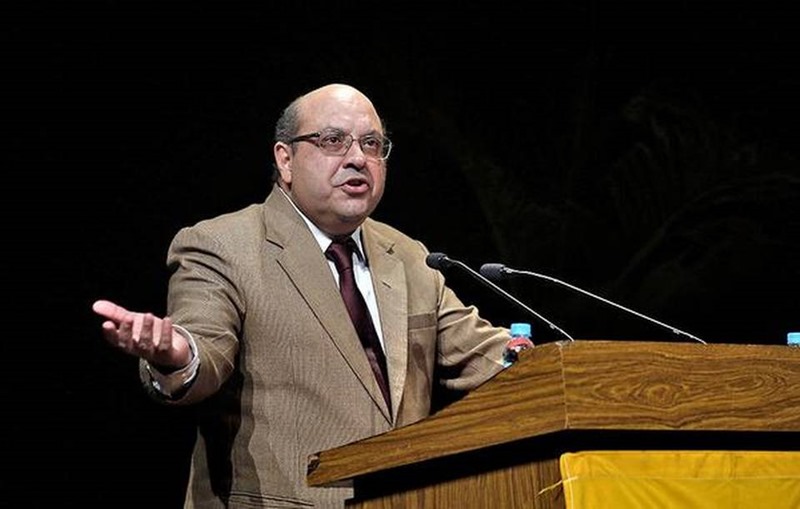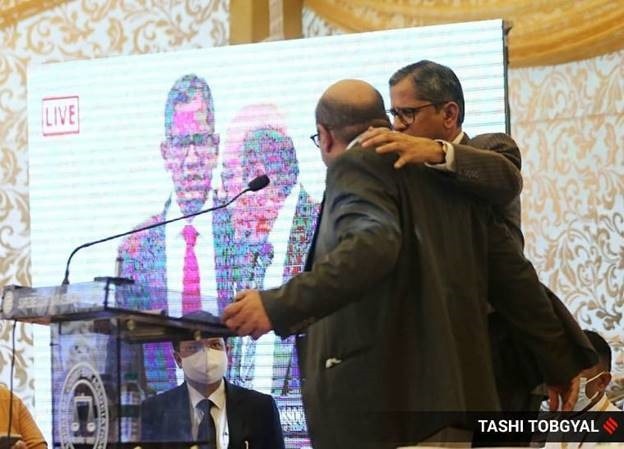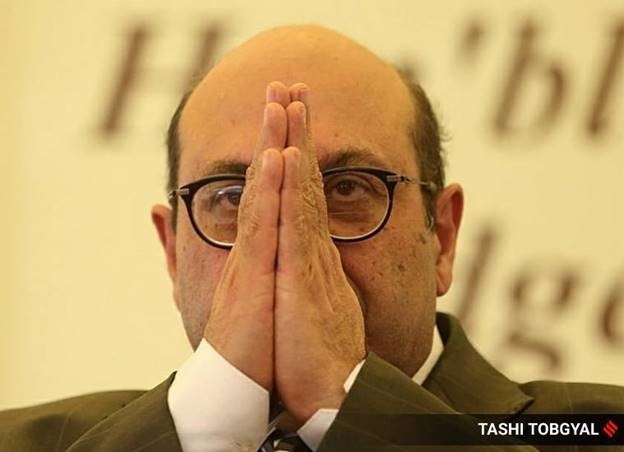Justice Rohinton Fali Nariman, Supreme Court’s ‘Renaissance Man’, retires on August 12
Article by Krishnadas Rajagopal
‘His is an absolute integrity matched by phenomenal memory and a capacity for hard work’
Justice Rohinton Fali Nariman, Supreme Court’s “Renaissance Man”, retires on August 12. He was sui generis on the Bench. Sharp, brusque, fearless and armed with repartees. He did not suffer incompetence and frivolous cases in court, dismissing both without mercy.
His professional trajectory, for lack of better words, has been path-breaking. In 1993, then Chief Justice of India M.N. Venkatachaliah amended the court’s rules to designate him senior advocate at the age of 37. He was appointed Solicitor General of India in 2011. He became only the fifth lawyer in the nation’s history to be directly appointed as judge of the Supreme Court in 2014.
An institution in himself
But Justice Nariman has always been more than a lawyer and a judge. Parsi priest, a scholar of classical western music and theology and a published author are some of his many caps. Penguin, which is releasing his new work ‘Discordant Notes -The Voice of Dissent in the Last Court of Resort’ in two volumes, introduces the author as “an institution in himself”.
Justice V. Ramasubramanian, who shared the Bench and many laughs with Justice Nariman, called him a “one-man army”. He referred to Justice Nariman’s blistering pace and scope of work. Most judgments would be ready for pronouncement within 48 hours of the closure of arguments in court.
“I once told him in a lighter vein that had you been a woman, you would not have waited for nine months to deliver. He retorted saying ‘please be happy so long as they are not premature babies’,” Justice Ramasubramanian reminisced about his colleague at a public event.
Justice Nariman almost single-handedly steered the Insolvency and Bankruptcy Code through its teething years. Of the 164 Supreme Court judgments on the Code, 81 were authored by him.
“Justice Nariman spoke through his judgments. He has no personal agenda. His is an absolute integrity matched by phenomenal memory and a capacity for hard work. He is one of our great minds,” Justice Ramasubramanian said in his speech.
Words scrolled on an invitation for the launch of Justice Nariman’s book ‘Inner Fire’ in 2016 captures the essence of his pursuit of happiness through the path of truth. They read, “Truth is good. Indeed, it is best. It is happiness. Happiness comes to him, who, for the sake of truth, follows the path of truth.”
Seven-year tenure
Justice Nariman’s judgments in his seven-year tenure tap the myriad nerves of our social and legal fabric.
The Supreme Court amended its rules following his judgment that review petitions filed by condemned prisoners should be heard in open court and not within the four walls of judges’ chambers.
He struck down Section 66A of the Information Technology Act which armed the State with power to send people to prison for ‘uncomfortable’ social media messages. In his judgment in the Shreya Singhal case, Justice Nariman said, “The freedom of speech and the Press is the Ark of the Covenant of Democracy because public criticism is essential to the working of its institutions.”
His opinion saved the day for the “little man’s right to privacy”. It paved the way for privacy to be read into the Constitution as a fundamental right.
He cleansed a colonial smear from the Indian Penal Code by decriminalising homosexuality. He said the community is entitled to live with dignity. He banished the crime of adultery, saying the penal law made the husband the ‘licensor’ of his wife’s sexual choices.
Justice Nariman was part of the majority on the Bench which held that women aged between 10 and 50 years cannot be barred from the Sabarimala temple on the biological ground of menstruation. Later, when the case came up for review, his dissent shone as much as his earlier majority opinion. His absence on the Ayodhya Bench was stark.
His judgment on instant talaq found the Muslim man’s “capricious and whimsical” right “manifestly arbitrary”.
Justice Nariman held political parties accountable for the ‘criminal’ candidates they field in elections. His last judgment on August 10 chastised the lawmakers. “The nation continues to wait, and is losing patience. Cleansing the polluted stream of politics is obviously not one of the immediate pressing concerns of the legislative branch of government.”
He urged Parliament to take away the Speaker’s power to decide disqualification under the Tenth Schedule. He said an independent tribunal should be formed for this function.
In one of his judgments he pondered about law’s tolerance for moral wrongs. “Many things which are not punishable are morally worse than many things which are punishable… The rich man who refuses a mouthful of rice to save a fellow creature from death may be far worse a man than the starving wretch who snatches and devours the rice. Yet we punish the latter for theft…”
Senior advocate Fali Nariman once said it had taken him and his wife a while to appreciate the qualities of their son’s head and heart.
Justice Rohinton Nariman exits, batted for free speech, privacy
Son of noted jurist Fali Nariman and a postgraduate from Harvard Law School, Nariman was designated as a senior counsel in December 1993, at the young age of 37.
Article by Ananthakrishnan G | Indian Express
Supreme court judge Justice RF Nariman addresses the gathering during his farewell on retiring in New Delhi on Thursday. (Express Photo by Tashi Tobgyal)
JUSTICE ROHINTON Fali Nariman, who demits office Thursday after seven years as a Supreme Court judge, leaves behind a trove of judgments that sought to further free speech, privacy and personal liberty, cleanse politics, rein in constitutional authorities and recalcitrant businesses and ensure gender justice.
Son of noted jurist Fali Nariman and a postgraduate from Harvard Law School, Nariman was designated as a senior counsel in December 1993, at the young age of 37.
The judiciary, however, had no doubts on his merit, and in little over a year, on July 7, 2014, he was sworn in as a Supreme Court judge, making him the fourth such counsel to be directly elevated from the bar to the bench.
While practising as a senior counsel in the Supreme Court, he was appointed Solicitor General of India in July 2011 for three years. But in February 2013, he gave up the position. Speculation was rife that he quit following differences over some directions of the then law minister Ashwani Kumar, but his resignation letter gave no hints.
The judiciary, however, had no doubts on his merit, and in little over a year, on July 7, 2014, he was sworn in as a Supreme Court judge, making him the fourth such counsel to be directly elevated from the bar to the bench.
Justice Nariman minced no words when it came to judgments.
In March 2015, writing for a two-judge bench that struck down the controversial Section 66A introduced by the UPA government in the Information Technology Act, 2000, he said it is clear that the provision “arbitrarily, excessively and disproportionately invades the right of free speech and upsets the balance between such right and the reasonable restrictions that may be imposed on such right”.
“Such is the reach of the Section and if it is to withstand the test of constitutionality, the chilling effect on free speech would be total,” he said about the provision, which empowered police to arrest people for comments on social media.
![]() Justice Nariman minced no words when it came to judgments.
Justice Nariman minced no words when it came to judgments.
In August 2017, a majority judgment by him and two others held as unconstitutional the centuries-old practice of instant triple talaq or talaq-e-biddat. In doing so, Justice Nariman laid out a new rule of jurisprudence – that manifest arbitrariness can be a ground for striking down a law.
That month also saw a nine-judge bench, including him, rule unanimously in the landmark Aadhaar case that “privacy is intrinsic to freedom of life and personal liberty guaranteed under Article 21 of Constitution”.
Decriminalising homosexuality in 2018 in the Navtej Singh Johar and Others vs Union of India case, Justice Nariman was categorical that “persons who are homosexual have a fundamental right to live with dignity… are entitled to the protection of equal laws, and are entitled to be treated in society as human beings without any stigma being attached to any of them”.
In September 2018, a Constituion bench composing Justice Nariman struck down Section 497 of the Indian Penal Code that makes adultery a punishable offence for men, saying the 158-year-old law was unconstitutional and fell foul of Article 21 (Right to life and personal liberty) and Article 14 (Right to equality).
An ordained Parsi priest, his knowledge of scriptures and philosophies of major religions made him an obvious choice for the bench which took up petitions challenging restrictions on entry of women of a particular age in the Sabarimala shrine. He spoke on gender rights in September 2018, concurring with the majority 4:1 verdict which favoured doing away with the restrictions.
Justice Nariman was also part of the bench which saw through the updation of the National Register of Citizens (NRC) for Assam. Rights groups had criticised the exercise, saying it violated the 1955 Citizenship Act.
In August 2018, the bench reprimanded Assam NRC Coordinator Prateek Hajela and Registrar General and Census Commissioner Sailesh for giving statements on the process to the press and warned them of contempt action and time in jail. Though Hajela tendered an apology, Justice Nariman told him: “What apology? We find this very strange… Speaking for myself, I am appalled.”
In December 2020, a three-judge bench headed by him directed installation of CCTV in offices of central agencies such as the CBI and NIA and in all police stations, in a bid to further protection of human rights.
On affirmative action, a constitution bench comprising him in September 2018 upheld the creamy layer principle of excluding the affluent among SC/STs from the ambit of reservation.
Justice Nariman also had his ways of dealing with constitutional authorities and private entities.
In March 2020, a bench headed by him did not take kindly to the delay by Manipur Assembly Speaker in deciding pleas seeking disqualification of minister Thounaojam Shyamkumar Singh. The bench took upon itself the responsibility of removing Singh from the state cabinet, invoking its extraordinary powers under Article 142 of the Constitution.
Justice Nariman was also part of the bench which saw through the updation of the National Register of Citizens (NRC) for Assam.
Another bench headed by him found Reliance Communications Ltd chairman Anil Ambani guilty of contempt of court in February 2019 for not honouring an undertaking to pay Rs 550 crore in dues to Ericsson India Ltd.
Justice Nariman also did his bit to clean up elections, directing political parties last year to make public details of criminal cases against its candidates within a stipulated time. On Tuesday, a bench headed by him held nine political parties guilty of contempt.
His command over commercial laws also made his bench the principal destination for such matters.
On August 6, 2021, a bench headed by him upheld the October 25, 2020 interim award of the Emergency Arbitrator under the Arbitration Rules of the Singapore International Arbitration Centre, restraining Kishore Biyani’s Future Retail Limited from selling its assets to Mukesh Ambani’s Reliance Infrastructure Group in what was touted to be a multi-billion deal.
In May 2016, writing for a two-judge bench, Justice Nariman held the Telecom Consumers Protection Regulations, 2015, that made telecom providers liable to credit each calling consumer Re 1 for each call drop within its network, as ultra vires under the Telecom Regulatory Authority of India Act.
Dealing with petitions on the subject of wealth tax, a bench headed by him ruled in September 2020 that the prestigious Bangalore Club cannot be brought into the wealth tax net.



